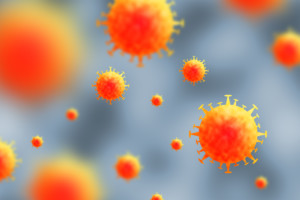 In 2019, there was a strong, quite single-minded push against plastics in general from many civil society organisations as well as from major players in the media, and politics predominantly switched to this opinion. Long before the Covid-19 outbreak, industry associations expressed great reservations as to whether the restrictions included in the Single-use Plastics Directive (SUPD) would have no negative effects on hygiene and general consumer safety. Right now, can one imagine a hospital without access to sterile single-use equipment? It is becoming evident that not all plastic is bad as protective packaging can ensure safety beyond mere convenience.
In 2019, there was a strong, quite single-minded push against plastics in general from many civil society organisations as well as from major players in the media, and politics predominantly switched to this opinion. Long before the Covid-19 outbreak, industry associations expressed great reservations as to whether the restrictions included in the Single-use Plastics Directive (SUPD) would have no negative effects on hygiene and general consumer safety. Right now, can one imagine a hospital without access to sterile single-use equipment? It is becoming evident that not all plastic is bad as protective packaging can ensure safety beyond mere convenience.
That doesn’t mean that we can simply continue pre-Covid consumer patterns. The bioplastics industry certainly supports the European Union’s goal to reduce (over)packaging and packaging waste as well as the drive to design packaging for re-use and recyclability. However, we also believe that excessive and undifferentiated measures won’t help solve the challenge of plastic pollution. At the moment, the European Commission (EC) banned or at least significantly reduced the use of a large number of single-use plastic applications without adequate substitutes at hand that provide the same properties. On the EC’s lookout for “sustainable alternatives“, mentioned in its legislation, the benefits of bioplastics are largely ignored. Thus, most single-use bioplastic applications will not be taken into consideration.
Besides bio-based or/and biodegradable solutions to single-use plastic products, the bioplastics industry also makes important contributions in other areas of the fight against the Covid-19 pandemic. The 3D printing of medical equipment is among the key areas of application for bioplastics. Many EUBP members are deeply engaged in providing support. E.g. Total Corbion PLA is joining the fight against the Corona virus by donating resins. Among other things, the PLA resin will be converted to PLA filaments. Those filaments will then be used to produce medical masks and protective equipment using 3D printing technology. With a donation of 5 tons of PLA, already over 125.000 masks had been produced. Aimplas, a EUBP member from Spain, also produces and donates facial protection. Besides, the research centre is providing technical support to facilitate the production of urgently needed plastic applications to combat the virus. BASF 3D Printing Solutions and many other company divisions support hospitals by printing the required frames for protective face shields. This rather brief selection could be continued with many more examples where bioplastics make important contributions. As every industry sector, the bioplastics industry assumes its responsibility in the fight against the Covid-19 pandemic.